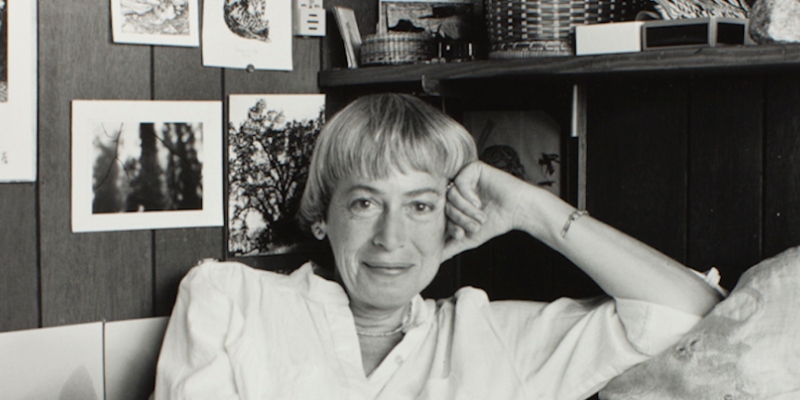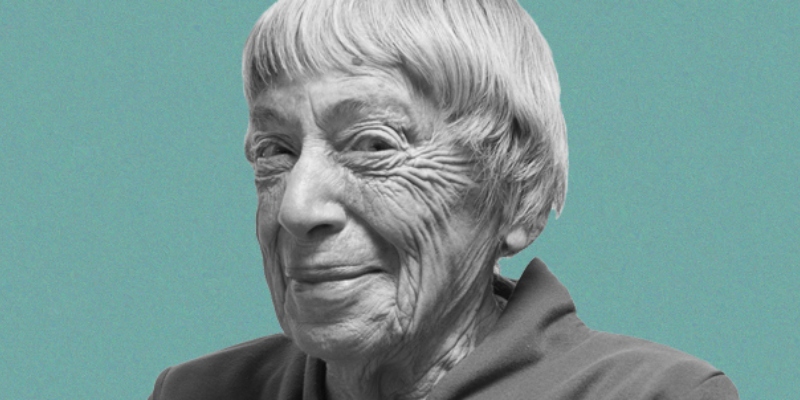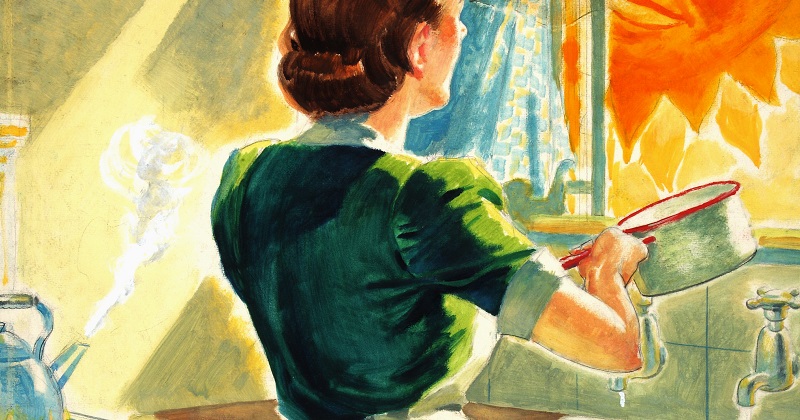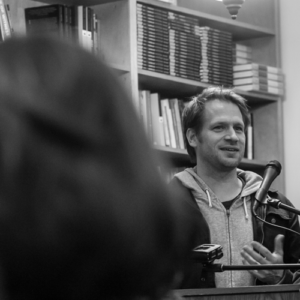The Journey That Matters is a series of six short videos from Arwen Curry, the director and producer of Worlds of Ursula K. Le Guin, a Hugo Award-nominated 2018 feature documentary about the iconic author.
In the final installment of the series, Julie Phillips reflects on “He’s My First Reader,” in which Ursula and her husband, Charles, discuss how their division of household labor helped Ursula thrive.
When Ursula Kroeber met and fell in love with Charles Le Guin, their meeting, on a ship bound for France, seemed to her almost magically improbable. “Obviously this sort of thing doesn’t happen,” she wrote him six weeks after they met. “I mean, conceivably you might exist, but you would never sit at Table 30 at 2nd sitting for dinner in tourist class on the Queen Mary on Sept 23rd 1953; I ask you, now would you?”
Charles felt the same, though he didn’t recognize true love quite as quickly as she. “I thought she was awfully snooty and shy the first meals; and she thought that I was British and very reserved. But after those first misapprehensions were displaced, we have scarcely been apart at all the last month,” he wrote his parents. “How do I tell you all this without it seeming silly or impossible? It is neither—not impossible because it has happened; not silly because it is too deep and too wonderful. Ursula and I are going to be married.”
They were too practical to use words like “fate,” but Ursula wrote home, “We both think (& we are Awfully intelligent people) that we have found something truly large & solid. I mean, it doesn’t take three weeks to see the Rock of Gibraltar, sort of. Even if it turned out to be a magnificent pebble, we would have only lovely remembrances, Paris is such a nice city to walk arm-in-arm in. But I – don’t – think – it – will.”
Charles was, she added, “sometimes a little cracked and a gentle man & a gentleman and a very, very good man.” He was like Ursula, romantic and pragmatic, funny and serious. He was a historian, loved literature, and was as delighted as she was by the pleasures of Paris (and, later, the pleasures of Portland Oregon). He was affectionate and easygoing, where she could be argumentative and a worrier. They both came from close, warm families, and Ursula began fantasizing about the family they would start together. “Oh what a bourgeoise you have found for yourself, my dear!” she wrote. “But what a fire & force of love there’s going to be in our bourgeois existence; it would suffice for a dozen proletarians & Aristos, it would.”
Eventually they cared for their three children together, so that Ursula was able to keep family and writing in balance. It wasn’t always idyllic, and there were gains and losses over time. But they loyally supported each other’s careers. They were the first readers for each other’s work—and he learned not to distract her when she was writing. The snapshot of Ursula at the typewriter in this clip was taken by Charles in 1955, while she was working on her historical novel Malafrena. To her parents she explained that it was “actually a picture of the Revolution of 1830 in progress, but expression on my face is because I had just seen the camera in my sneaking lowdown hubsbands [sic] hands and was about to shout Avaunt! and throw an ink-well at him.”
“True journey is return,” Ursula wrote in one of her most often quoted lines. For her, return meant partly family, partnership, the place and people she came back to when she was done inventing worlds. She could be most herself when she was with him, she wrote Charles—and that, she explained, was what she meant by coming home.
—Julie Phillips, author of The Baby on the Fire Escape
*
Further reading:
The Complexity of Keeping House is Worthy of Great Literature
“’Housekeeping, the art of the infinite, is no game for amateurs,’ Ursula K. Le Guin writes in one of her short stories, and Tehanu, the fourth of five novels in Le Guin’s Earthsea series, makes a similar point.”

My Last Conversation with Ursula K. Le Guin
“One person cannot bring up three kids and write full time. No way. But two people can do two full time jobs and kids.”

Ursula K. Le Guin, Editing to the End
“It was these gestures of Ursula’s, the quiet and overlooked ones, that didn’t seem like acts of top-down noblesse oblige but rather, as small acts that nevertheless represented the whole of her, even the source of her wholeness.”



